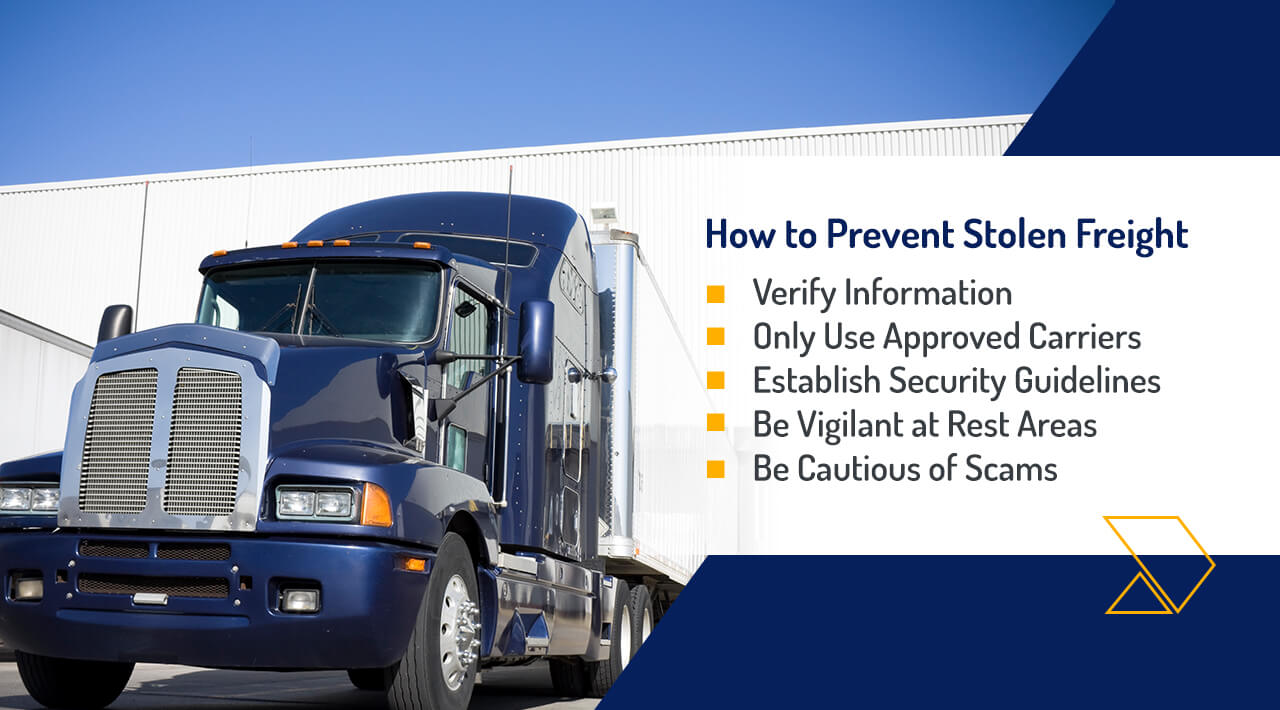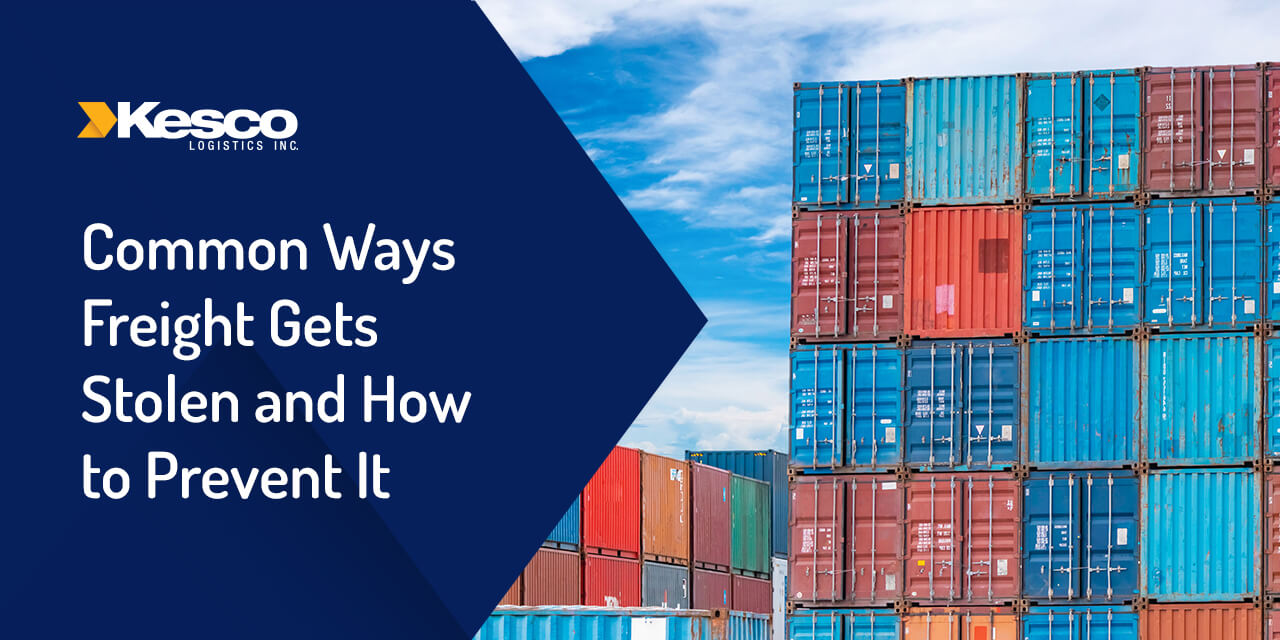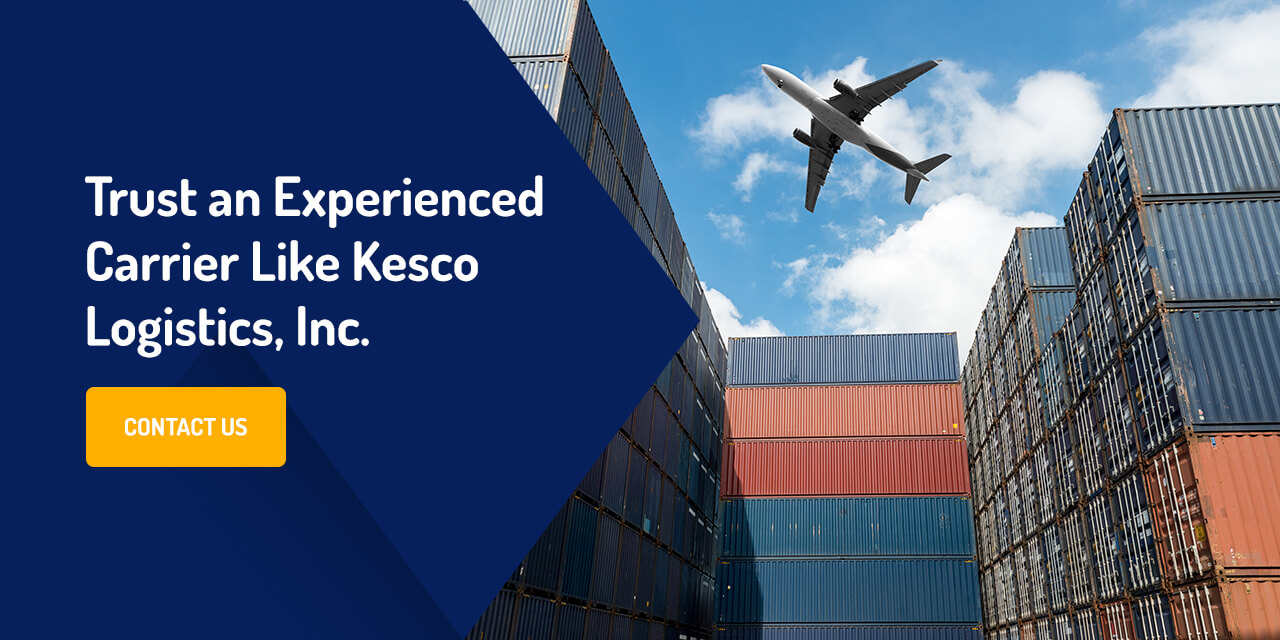All kinds of products of various values are shipped around the country and the world every day. Cargo thieves look for freight shipments containing products they can steal and easily resell. Cargo theft remains a threat, despite the industry’s best efforts. Find out how freight can be stolen to prevent it from happening to your loads.
How Freight Is Stolen
Unfortunately, thieves work hard to find new ways to outsmart security measures. How they steal goods and products is always changing. However, knowing common cargo theft methods tells you what to be cautious of. Consider some of the most common ways freight is stolen:
Unsecured or Unattended Trucks
Truck drivers must take rest breaks when on duty to ensure they stay alert and awake at the wheel. Drivers won’t be with their trucks or driving for their entire shift, resulting in vulnerable unsecured or unattended trucks. Truck stop theft and theft in parking lots and unsecured yards are common because drivers tend to take their breaks in these locations. When cargo thieves target an unmonitored truck, they’ll typically move the products into their own truck and leave the original behind.
Impersonating Carriers
Carrier fraud is a form of identity theft. One form of carrier fraud is the impersonation of a real carrier company. A fraudulent carrier will pose as a legitimate carrier to steal cargo. These thieves will go to great lengths to convince you of their identities. They may use a truck displaying the right information to make it look like the legitimate carrier is picking up the load. Frauds may show up for a load posing as the legitimate carrier and be gone by the time the real one arrives.
Posing as a Real Carrier
Another form of carrier fraud is thieves acting as fake carrier companies with made-up credentials. Fraudulent carriers use online boards to win bids on loads or present forged certifications and paperwork when meeting with a shipper. This method enables thieves to pick up and steal entire trucks full of products.
Leakage Operations
Thieves use leakage operations to fly under the radar and steal parts of a shipment rather than the entire load. Leakage operations can be challenging to detect because the operations tend to be elaborate. These methods often include removing products from boxes and crates then resealing the packages to conceal the theft until they’re long gone. The trailers often show signs of tampering as thieves need to break into them to get the desired products.

How to Prevent Stolen Freight
Luckily, knowing how freight can be stolen also helps you take measures to prevent theft. There are several ways you and the carrier can work to prevent stolen freight. Keep these tips in mind when working with a shipping company:
Verify Information
You should always verify a carrier’s information before they take possession of the load. Ensure the carrier’s name and trucking information displayed on the trailer matches the information on file. Doing this will help you catch any immediate red flags. You can also rigorously vet the carrier before using their services to ensure the driver who showed up is who they’re supposed to be.
Only Use Approved Carriers
If you work with a third-party company (3PL), only use carriers they’ve approved. Research companies to determine whether they’re a legitimate partner to your 3PL. Carriers that the third party works with consistently tend to be more reliable than a company you stubbled upon in a bidding platform.
Establish Security Guidelines
While your carrier is primarily responsible for preventing theft in transit, establishing load requirements and security guidelines for any company transporting your freight can help you do your part in preventing in-transit theft. For example, you may require the use of specific locks, only park overnight in secure locations or only leave trailers unattended for a specified amount of time. You might also park so the trailer door is against a wall so no one can get into it.
Be Vigilant at Rest Areas
Remind your carrier to be vigilant at rest stops. Trucks left unattended at truck stops are frequent targets of cargo thieves. Drivers should be wary at rest areas within the first 100 miles of their trip. Cargo thieves may watch shippers to find out when they have a load, then follow them until they make a stop with the intention of stealing the load.
Be Cautious of Scams
Knowing industry standards can help you avoid scams. For example, be wary of companies claiming to work for rates significantly lower than industry standards. While a good price may seem hard to pass up, it’s best to spend a little more on a reputable freight company rather than get scammed.
What to Do if Your Freight Is Stolen
If your freight is stolen, here are three things you should do immediately:
- Gather relevant information: Gathering information like what the cargo was, how much was stolen, the value of the product and where the shipment was last known to be makes it easier to report the incident and track down the products. This information is also necessary for filing a claim with the carrier’s insurance.
- Contact the carrier: If you suspect your load was stolen, contact the carrier you contracted with for the shipment. Determine if the thief might have been the carrier’s driver, or you may get a hint at whether the entire company was involved. However, keep in mind that the carrier could have been a victim of carrier fraud. To get in contact with the actual company, search for their contact information through the Federal Motor Carrier Safety Association (FMCSA).
- Notify law enforcement: Regardless of whether you’re able to get in contact with the carrier, you should notify law enforcement if your shipment was stolen. If the load was stolen while in transit, contact police in the city where its location was last known. When contacting authorities, provide as much information as possible.
Trust an Experienced Carrier Like Kesco Logistics, Inc.
At Kesco Logistics, we’ve been working to deliver freight solutions for our customers for over three decades. We understand that your freight and needs will likely differ from the next customer, which is why we offer custom solutions at competitive rates. Our customer service, routing options and transit times are hard to beat.
From freight forwarding to customs brokerage and more, contact us to find out how we can help you.





